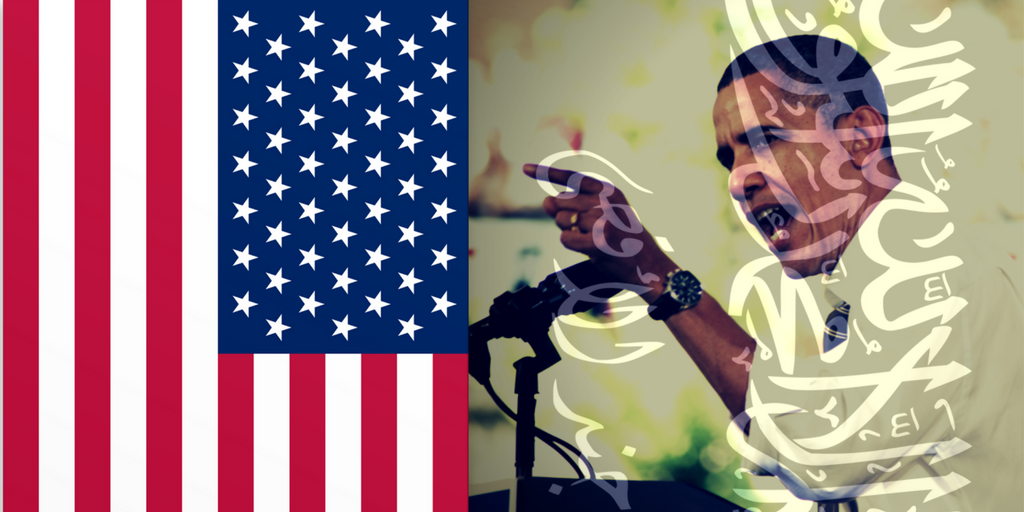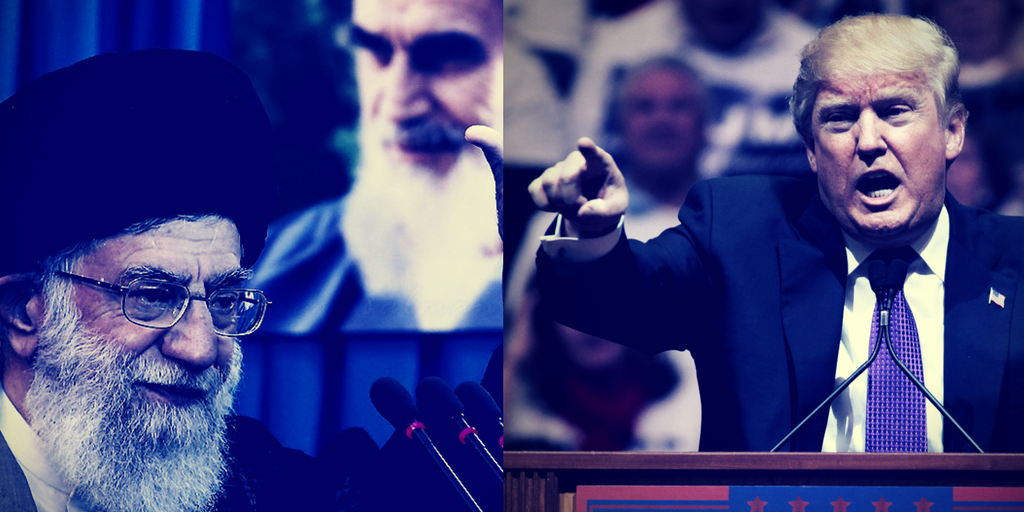In 1989, following her tenure as President Ronald Reagan’s ambassador to the UN Jeane Kirkpatrick described how the Palestinians have used the UN to destroy Israel.
Following outgoing US President Barack Obama’s assault on Israel at the UN Security Council last Friday, longtime UN observer Claudia Rossett wrote an important article at PJMedia where she recalled Kirkpatrick’s words.
In “How the PLO was legitimized,” published in Commentary, Kirkpatrick said that Yassir Arafat and the PLO worked “to come to power through international diplomacy – reinforced by murder.”
Kirkpatrick explained, “The long march through the UN has produced many benefits for the PLO. It has created a people where there was none; a claim where there was none. Now the PLO is seeking to create a state where there already is one. That will take more than resolutions and more than an ‘international peace conference.’ But having succeeded so well over the years in its campaign to delegitimize Israel, the PLO might yet also succeed in bringing the campaign to a triumphant conclusion, with consequences for the Jewish state that would be nothing short of catastrophic.”
As Rossett noted, in falsely arguing that Obama’s support for Friday’s UN Security Council Resolution 2334 is in line with Reagan’s policies, Obama’s UN ambassador Samantha Power deliberately distorted the historical record of US policy towards Israel and the PLO-led UN onslaught against the Jewish state.
In stark contrast to Power’s self-serving lie, neither Reagan nor George H.W. Bush, Bill Clinton nor George W. Bush would have ever countenanced a resolution like 2334.
Obama’s predecessors’ opposition to the war against Israel at the UN was not merely an expression of their support for Israel. They acted also out of a fealty to US power, which is directly targeted by that war.
It is critical that we understand how this is the case, and why the implications of Resolution 2334 are disastrous to the US itself.
Resolution 2334 is being presented as an “anti-settlement” resolution. But it is not an anti-settlement resolution.
Jewish communities in Judea and Samaria and neighborhoods in Jerusalem are being used – as they always have been used – as a means of delegitimizing the Jewish state as a whole, and legitimizing Palestinian terrorists and Islamic terrorists more generally. Resolution 2334 serves to criminalize Israel and its people and to undermine Israel’s right to exist, while embracing Palestinian terrorists and empowering them in their war to annihilate Israel.
America’s historic refusal to countenance such actions at the UN Security was never a purely altruistic position. It was also a stand for American power and the inherent justice of American superpower status and global leadership.
Throughout most of its history, the UN has served as a proxy battlefield first of the Cold War, and since the destruction of the Soviet Union, for the war against the US-led Free World.
Beginning in the early 1960s, the Soviets viewed the political war against Israel at the UN as a means to undermine the moral basis for the US-led West. If Israel, the only human rights defending state in the Middle East, and the US’s only stable ally in the region could be delegitimized, then the very coherence of the US-led Western claim to moral superiority against the totalitarian Soviet empire would be undone.
Hence, the first Soviet attempt at the UN to castigate Zionism, the Jewish national liberation movement, as a form of racism was made in 1965, two years before Israel took control of Judea and Samaria and united Jerusalem in the Six Day War.
That attempt failed. But nine years later the wording first raised in 1965 was adopted by the UN General Assembly which passed resolution 3379 slandering libeled Zionism as “a form of racism.”
With their automatic majority in the General Assembly and all other UN organs, the Soviets used the Palestinian war against Israel as a proxy for their war against America. After the demise of the Soviet Union, the Islamic bloc, backed by members of the former Soviet bloc, the non-aligned bloc and the Europeans continued their campaign. The only thing that kept them from winning was the US and its Security Council veto.
When Obama chose to lead the anti-Israel lynch mob at the Security Council last week, he did more than deliver the PLO terrorist organization its greatest victory to date against Israel. He delivered a strategic victory to the anti-American forces that seek to destroy the coherence of American superpower status. That is, he carried out a strategic strike on American power.
By leading the gang rape of Israel on Friday, Obama undermined the rationale for American power. Why should the US assert a sovereign right to stand against the radical forces that control the UN?
If US agrees that Israel is committing a crime by respecting the civil and human rights of its citizens to live in Jerusalem, Judea and Samaria, then how can America claim that it has the right to defend its own rights and interests, when those clash with the views of the vast majority of state members of the UN?
Following Obama’s assault on Israel Friday, Senators Lindsay Graham and Ted Cruz called for the US to end its financial support for the UN at least until the Security Council abrogates Resolution 2334. They are correct.
But it isn’t anger at how Obama has and is expected to continue to use the Security Council to imperil Israel that should inform the incoming Trump administration’s actions. Rather a determination to maintain US power and secure its national security requires that the UN be permanently defunded and defanged.
For eight years, through his embrace and empowerment of US enemies, betrayal and weakening of US allies, emaciation of the US armed forces and repeated apologies for America’s past assertions of global leadership Obama has waged a determined war against US superpower status. The last vestige of the strategic and moral rationale for US power was the protection America afforded Israel at the Security Council.
Now with that gone, it has become a strategic imperative for the US to render the UN irrelevant. This can only be undertaken by permanently defunding this corrupt institution and using the US’s Security Council veto to end the UN’s role as the arbiter of international peace and security, by among other things, ending the deployment of UN forces to battle zones.
Only by stripping the UN of its financial wherewithal to assault US allies and American interests and by denying it the institutional and operational capacity to serve as an arbiter of disputes morally and legally superior to the US can America protect its sovereignty and advance its interests.
Only by denying those associated with the UN the prestige that confers to an institution legitimized by democrat and autocrat alike can the incoming Trump administration rebuild America’s reputation and power.
It is not surprising that Obama is carrying out the final act of his presidency at the UN. Obama has made no attempt to hide his desire to eliminate America’s independence of action. By elevating the post of UN ambassador to a cabinet level position at the outset of his presidency, Obama signaled his conviction that this corrupt institution is the equal of the US government.
This early signal was transformed into an open policy when Obama used the Security Council as a means to bypass the US Senate in implementing his nuclear deal with Iran.
Now, by ignoring the near consensus position of both parties that the US should block anti-Israel resolutions from being adopted at the Security Council and plotting further action against Israel at the Security Council in his final weeks in office, Obama has made clear his position and his aim.
Obama is not leading the war against Israel at the Security Council simply to advance the PLO’s war for the annihilation of Israel. He is acting in this manner to undermine the legitimacy of American power.
Obama’s strategic campaign against his country can only be defeated by a counter campaign by his successor.
Luckily, by eschewing multilateral entanglements in favor of bilateral partnerships during his presidential campaign, President-elect Donald Trump has demonstrated that he understands the threat and will adopt the only possible means of countering it. To reassert and rebuild the rationale for American power, the Trump administration must permanently defund the UN and reject its legitimacy as an institution of global governance.
Originally published in The Jerusalem Post.
[huge_it_share]





